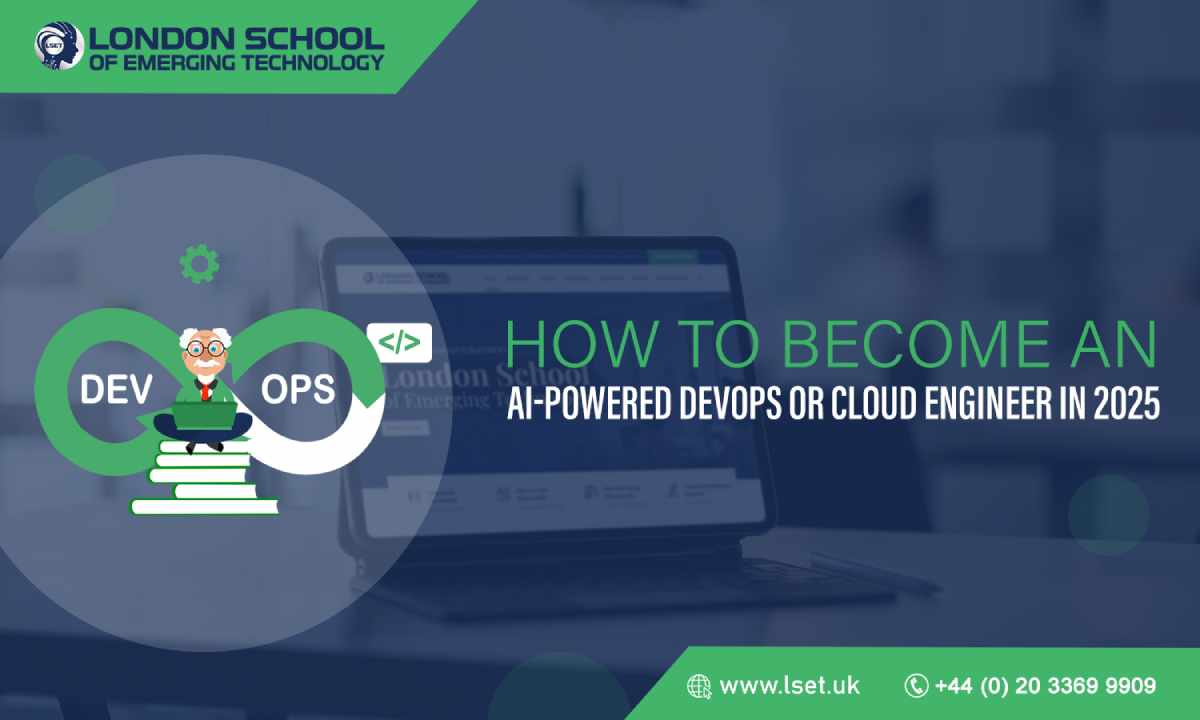The technology landscape is rapidly evolving, and the fusion of artificial intelligence with DevOps and cloud engineering is transforming traditional IT roles. In 2025, professionals who combine infrastructure skills with intelligent automation will be in demand across industries.
Understanding the Role of an AI-Powered DevOps or Cloud Engineer
AI-powered DevOps and cloud engineers are responsible for deploying, managing, and automating infrastructure using cloud platforms and AI tools. They use machine learning models to monitor systems, predict issues, and enhance deployment processes.
The Shift Towards Intelligent Automation
Modern cloud environments support dynamic workloads, and AI enables predictive resource allocation, automated security monitoring, and intelligent alerting. This results in more resilient and efficient systems.
Skills Required in 2025
To succeed in this role, professionals need a blend of cloud computing, automation, and machine learning skills. Familiarity with containerisation, orchestration, serverless computing, and data pipelines is essential.
Key Technologies and Tools
Cloud Platforms
Proficiency in services from AWS, Azure, or Google Cloud is crucial. These platforms offer tools for automation, monitoring, and AI integration.
Infrastructure as Code (IaC)
Tools such as Terraform, AWS CloudFormation, and Pulumi allow engineers to define infrastructure in code, making deployments repeatable and version-controlled.
CI/CD and Automation
Continuous integration and delivery pipelines are enhanced with AI features. Tools like GitHub Actions, Jenkins, and AWS CodePipeline support automated testing, deployment, and rollback.
AI and ML Integration
Machine learning can be integrated into DevOps workflows using platforms like Amazon SageMaker, Azure ML, and TensorFlow. These tools help in predictive maintenance and intelligent alerting.
Learning Path for 2025
Step 1: Master Cloud Fundamentals
Start by learning the core concepts of cloud computing. Certifications like AWS Cloud Practitioner or Microsoft Azure Fundamentals are helpful.
Step 2: Learn DevOps Practices
Understand version control, CI/CD, monitoring, and logging. Practice using tools like Docker, Kubernetes, and Jenkins.
Step 3: Explore AI and ML Basics
Learn machine learning fundamentals using Python and libraries such as scikit-learn and Pandas. Understand how AI can enhance system performance.
Step 4: Combine Skills in Real Projects
Work on sample projects that combine cloud deployment with intelligent automation. Examples include auto-scaling models, anomaly detection, and predictive alerts.
Real-World Applications
Proactive Monitoring
AI models detect irregular patterns in system logs and metrics, enabling faster incident resolution.
Automated Scaling
ML algorithms predict usage trends and adjust resource allocation automatically.
Intelligent CI/CD Pipelines
AI enhances test prioritisation and deployment verification, reducing errors in production.
Best Practices for Aspiring Engineers
Focus on Practical Skills
Hands-on experience with real-world tools and environments is more valuable than theory alone.
Stay Updated
Follow industry news, updates from cloud providers, and changes in DevOps best practices.
Build a Portfolio
Create and share projects that demonstrate cloud, DevOps, and AI integration. Use platforms like GitHub to showcase your work.
Conclusion
In 2025, becoming an AI-powered DevOps or cloud engineer requires a combination of cloud expertise, automation practices, and a solid understanding of AI. As businesses seek more intelligent and adaptive systems, professionals with these skills will play a key role in shaping the future of digital infrastructure.

